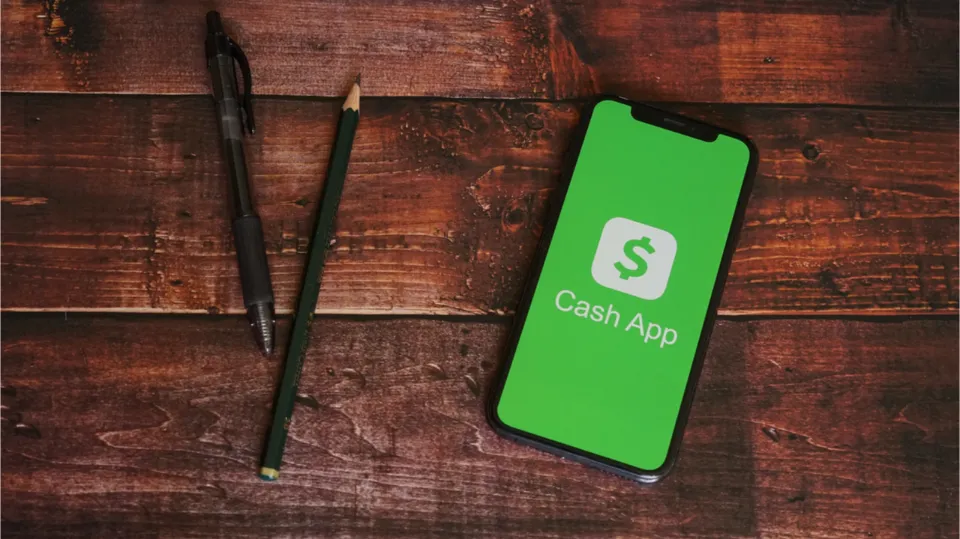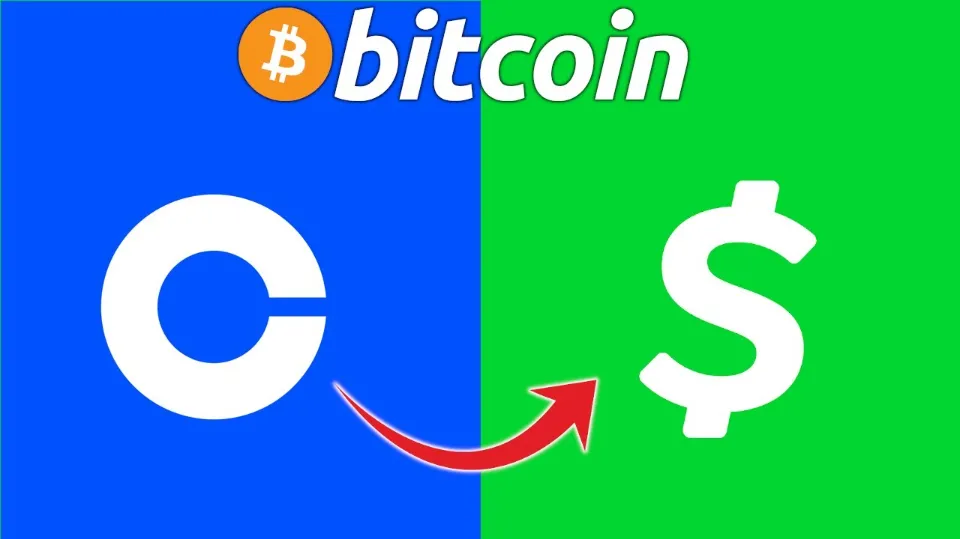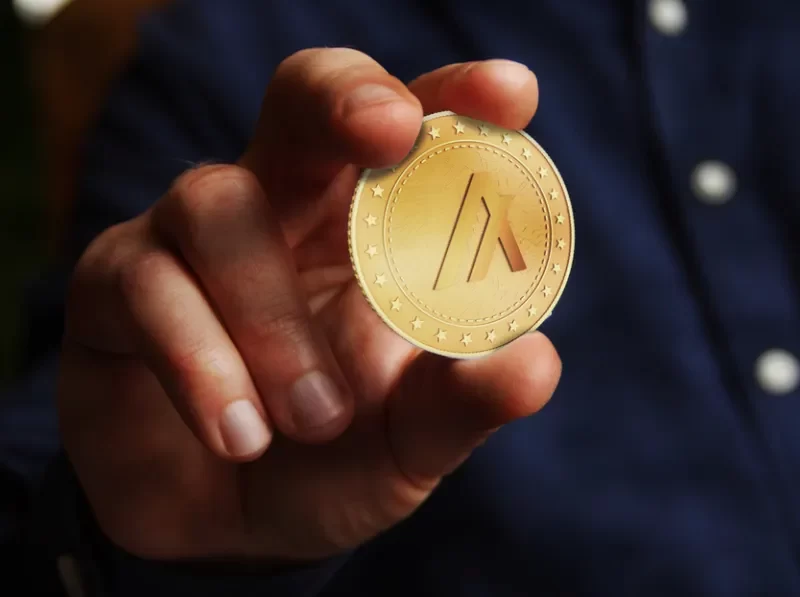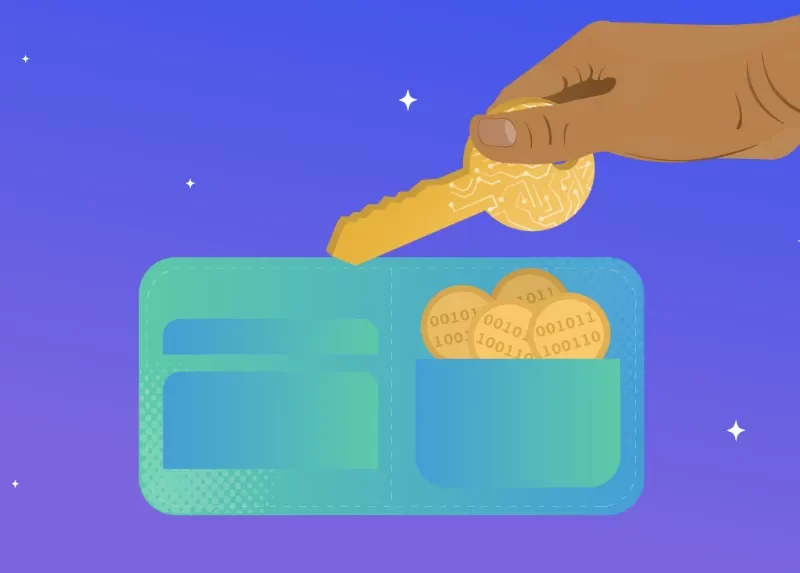Cash App and Coinbase are two choices that rank close to the top if you’re looking for a user-friendly way to purchase cryptocurrency. Each of them makes it simple to invest in cryptocurrencies, but aside from that, these platforms couldn’t be more dissimilar.
You can buy and sell Bitcoin (BTC) through Cash App, a stock broker that also functions as a payments app. One of the most popular cryptocurrency exchanges is Coinbase, which is functional for both novice and experienced investors.
In our thorough comparison of Cash App vs. Coinbase, you’ll learn more about their features so you can pick the one that fits your needs.
Cash App Vs. Coinbase: Fees
Coinbase has lower crypto trading fees than Cash App, which is an important advantage if you’re planning to invest in cryptocurrency regularly.
The fee amount is calculated by Cash App while the user is making a purchase rather than being made public. Before confirming the transaction, you can check the price. On purchases of $100 or less, fees are typically higher than 2%. Larger purchases result in lower fees, but they are still higher than what the best cryptocurrency exchanges charge.
It’s a little difficult to understand the Coinbase fees. This is due to Coinbase’s different fees depending on whether you use its advanced trading option or simple trading option.
The best option, with fees ranging from 0% to 0.60%, is Coinbase’s advanced trading tool, which it developed to replace its Coinbase Pro platform. According to a maker-taker model, fee amounts are calculated based on your trading volume. By extension, this means that Coinbase charges a taker fee when an order is immediately filled by another order on its order books and a maker fee when an order isn’t.
Read More: Crypto Compare Guide 2023 – Exchanges, Wallets, Tokens & More
Here’s how much Coinbase charges on advanced trades for clients with up to $1 million in 30-day trading volume:
| 30-NUMBER OF DAY TRADES IN THE U.S. DOLLARS | TAKER FEE | MAKER FEE |
|---|---|---|
| Up to $10,000 | 0.60% | 0.40% |
| $10,000 to $50,000 | 0.40% | 0.25% |
| $50,000 to $100,000 | 0.25% | 0.15% |
| $100,000 to $1,000,000 | 0.20% | 0.10% |
There is no fee structure disclosed for Coinbase’s simple trading option. Depending on the specific amount, smaller trades have a flat fee that ranges from $0.99 to $2.99. Trades of $205 and above have a variable fee that’s typically a little under 1.5%.
Here are the fees for purchasing various amounts of Bitcoin using the Cash App vs. other methods to give you an idea of the price difference. Coinbase:
| AMOUNT OF BITCOIN | CASH APP | COINBASE SIMPLE TRADE | COINBASE ADVANCED TRADE |
|---|---|---|---|
| $10 | $0.22 | $0.99 | $0.06 (taker) / $0.04 (maker) |
| $100 | $2.26 | $2.99 | $0.60 (taker) / $0.40 (maker |
| $1,000 | $17.59 | $14.68 | $6 (taker) / $4 (maker) |
It’s also important to note that Coinbase supports a variety of payment options. Some of them, like debit cards, have additional costs. You can avoid extra fees by sticking to ACH transfers from your bank account.
Cash App Vs. Coinbase: Cryptos Available

Coinbase significantly outperforms Cash App in the cryptocurrency selection department.
In terms of selection, Coinbase is among the best cryptocurrency exchanges. It offers well over 150 different cryptocurrencies, and it keeps adding more. If you sign up for a Coinbase account, then you’ll be able to trade a wide variety of cryptos, including the market leaders, stablecoins, and some smaller coins. Additionally, Coinbase provides crypto staking, which enables you to profit from a variety of cryptocurrencies.
Cash App only sells Bitcoin. That’s not a big deal if you’re looking for a stock trading app or payment app that also allows you to purchase Bitcoin, but if you’re serious about investing in cryptocurrencies, a dedicated crypto exchange is a better option. There are many major cryptocurrencies you can’t buy on Cash App, including:
- Ethereum (ETH)
- Cardano (ADA)
- USD Coin (USDC)
- Solana (SOL)
- Polkadot (DOT)
Read More: How to Stake Solana on Coinbase – Is It Work?
Cash App Vs. Coinbase: Wallets
You can send and receive cryptocurrency (only Bitcoin, in Cash App’s case) using your wallet address through the custodial wallets offered by both Cash App and Coinbase. Also known as hosted wallets, these are blockchain wallets controlled by the platform itself. Transferring your cryptocurrency to a non-custodial wallet on your own is advised if you want complete control over it.
Read More: Custodial vs Non-Custodial Wallets – Difference & Which One to Choose
In addition, Coinbase provides Coinbase Wallet, a non-custodial wallet. You don’t need to have an account with the exchange to use it, despite the fact that it was created by Coinbase. It’s a well-regarded wallet choice that supports both storing cryptocurrencies and other digital assets like non-fungible tokens (NFTs) as well as storing fiat currencies. (Read More: How To Send Ethereum from Coinbase to MetaMask)
Cash App Vs. Coinbase: Security
It is safe to buy and sell cryptocurrency on Cash App and Coinbase. Of the two, Coinbase offers insurance and keeps the majority of cryptocurrency offline in cold storage, giving its customers the most security. It’s much more difficult to steal cryptocurrency when it’s kept offline.
Cash App claims that to safeguard its users’ financial information and personal data, it employs cutting-edge fraud detection and encryption technology. Here are the most notable security features with Cash App:
- You receive a one-time-use login code each time you log in to the Cash App.
- You can set up a security lock so that Cash App needs your passcode in order to send money.
- You can also enable account alerts, which send you text, email, or push notifications whenever there is activity on your account.
- Bitcoin from Cash App users is kept in cold storage, at least in part. However, the amount kept in cold storage is not made explicit. It uses an online/offline wallet system, according to its website.
It’s worth noting that Cash App accounts are a popular target for hackers. Beware of phishing and other common scams if you decide to use it.
One of the safest cryptocurrency exchanges is Coinbase. Here are a few of the security measures it has in place to protect its customers and their funds:
- Customers of Coinbase must enable two-factor authentication (2FA). A password and a code sent to the account holder’s phone are just two examples of the two forms of identification that must be used to access an account when 2FA is enabled.
- 98% of the cryptocurrency funds on Coinbase are kept in cold storage.
- For the cryptocurrency funds that it stores in hot wallets (wallets that are connected to the internet), Coinbase has set up an insurance policy.
- U.S. customer accounts on Coinbase have FDIC insurance to cover cash funds. This type of insurance, which offers coverage of up to $250,000 per individual, is provided by most significant banks.
Both platforms have experienced security problems in the past. In 2021, a former Cash App employee was able to steal the private information of over 8 million users without ever stealing any money. In 2021, hackers stole money from at least 6,000 customers by taking advantage of a flaw in Coinbase’s SMS account recovery tools. To its credit, Coinbase fixed the vulnerability and reimbursed those clients.
Deposit and Withdrawal Methods
Debit card, bank account, or wire transfer are the three payment methods that Coinbase accepts.
Regarding withdrawal options, PayPal is another way you can get money from Coinbase.
Bitcoin or Bank transfer: The Square Cash App integrates with all major banks, enabling you to transfer money directly to and from your bank account. You have a choice between a free, three-day standard deposit or withdrawal option or an instant deposit or withdrawal option that costs an additional 1.5%.
Customer Support
Customer service for Coinbase is provided via email, and in our personal experience, we typically hear back from support within 24-72 hours. For general inquiries, they also have a sizable FAQ.
Through the app, you can contact their customer service (scroll down and tap Cash Support after tapping your profile). Exceptional customer service is not particularly well-known for The Cash App. Many users complain about getting their accounts disabled for no apparent reason with no customer support help to sort out the issue.
Trust and Reputation
Coinbase enjoys an excellent reputation and trust as a registered and regulated company with well-known VCs as investors, a transparent team, and an immaculate track record (with minor, anecdotal complaints from individual customers).
Being a San Francisco-based Bitcoin company, Coinbase must abide by all federal and state laws and regulations in the US. Here are some of the regulatory bodies, laws, and regulations that Coinbase complies with:
- It complies with all applicable state laws and rules governing money transmission.
- The USA Patriot Act is adhered to.
- It adheres to Bank Secrecy Act requirements.
- It has a Money Services Business registration with FinCEN.
Cash App is licensed under state money transmitter licenses.
They are subject to the institutions’ supervision, rule-making, and enforcement obligations when they make use of services like ACH. This would primarily include the Electronic Funds Transfer Act. EFTA is regulated by the Federal Trade Commission and the Consumer Financial Protection Bureau.
Read More:
Metamask vs Coinbase: Which Crypto Wallet I Should Choose?
Final Take
The choice between Cash App and Coinbase simply depends on what you’re looking for because these platforms are so dissimilar.
Coinbase is without a doubt the best option for investing in cryptocurrencies. One of the broadest selections of cryptocurrencies, cutting-edge trading tools, informative materials, and first-rate security are all featured on it. Trading commissions are reasonable as long as you use the sophisticated trading tool. In general, Coinbase has all the features you could ask for in an exchange.
If you’re looking for a simple-to-use stock trading app that also allows you to buy and sell bitcoin, Cash App is a good option. Due to the fact that, unlike Coinbase, it doesn’t only focus on cryptocurrencies, it has much more limited cryptocurrency support.
Cash App is fine if you’re just looking to dip your toes into cryptocurrency, but Coinbase is the best option for anyone who really wants to dive in.



